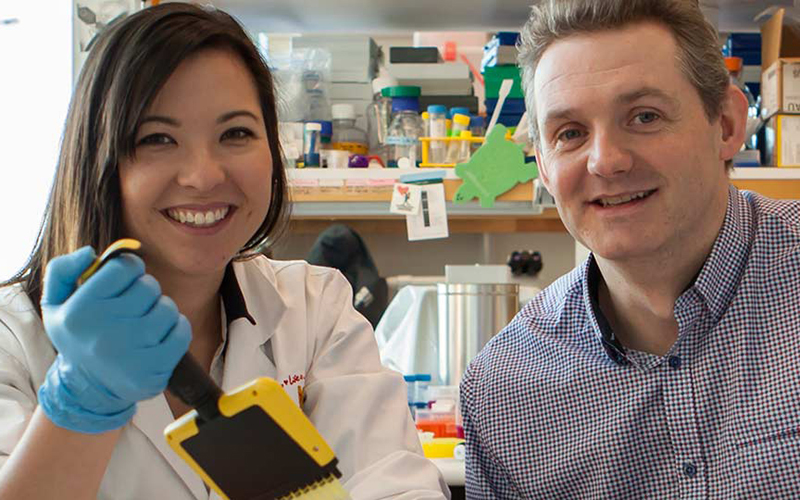Search
Research
Rare childhood cancers—an increasing entity requiring the need for global consensus and collaborationRare childhood cancers have not benefited to the same extent from the gains that have been made for their frequently occurring counterparts.
Research
Unusual paediatric spinal myxopapillary ependymomas: Unique molecular entities or pathological variations on a theme?We describe two unusual cases of MPE and use DNA methylation analyses to compare their signatures to try and distinguish if these represent a unique subset.

News & Events
Landmark research hopes to increase survival rates for aggressive childhood cancerA new combination of drugs could help to increase survival rates with fewer side effects for some children with one of the most aggressive forms of childhood brain cancer.
Research
Interactions between acute lymphoblastic leukemia and bone marrow stromal cells influence response to therapyThe cure rate for pediatric patients with B precursor acute lymphoblastic leukemia (pre-B ALL) is steadily improving, however relapses do occur despite...
Research
Boosting the influenza vaccine schedule in children with cancer: a prospective open-label studyCurrent immunization guidelines recommend one dose of influenza vaccine for children aged ≥9 years and two doses for younger or vaccine-naïve children. However, children receiving chemotherapy have an attenuated immune response. We performed a prospective open-label study in children undergoing treatment for cancer at Perth Children's Hospital, Western Australia, to examine the safety and efficacy of a boosted influenza schedule.
Research
A New Model to Investigate the Action of Radiation and Cigarette Smoke on Head and Neck Cancer CellsSmokers are at an increased risk of developing mucosal head and neck squamous cell cancers (HNSCCs) and have a worse prognosis when treated. The cellular and molecular mechanisms underlying the latter has not been established. We therefore developed an in vitro model to investigate the effects of radiation and smoking on mucosal HNSCCs.
Research
Coupling of response biomarkers between tumor and peripheral blood in patients undergoing chemoimmunotherapyPlatinum-based chemotherapy in combination with anti-PD-L1 antibodies has shown promising results in mesothelioma. However, the immunological mechanisms underlying its efficacy are not well understood and there are no predictive biomarkers to guide treatment decisions.
Research
“I Don’t Get to Play With My Mum Anymore”: Experiences of Siblings Aged 8–12 of Children With Cancer: A Qualitative StudySiblings of children with cancer have been shown to experience disruption in multiple domains including family, school, and friendships. Existing literature on siblings' experiences focuses on older children or on a broad range of ages.
Research
Population-level 5-year event-free survival for children with cancer in AustraliaEvent-free survival considers other adverse events in addition to mortality. It therefore provides a more complete understanding of the effectiveness and consequences of treatment than standard survival measures, but is rarely reported at the population level for childhood cancer.
Research
ONC201 in Combination with Paxalisib for the Treatment of H3K27-Altered Diffuse Midline GliomaDiffuse midline gliomas (DMG), including diffuse intrinsic pontine gliomas (DIPG), are the most lethal of childhood cancers. Palliative radiotherapy is the only established treatment, with median patient survival of 9 to 11 months. ONC201 is a DRD2 antagonist and ClpP agonist that has shown preclinical and emerging clinical efficacy in DMG.
